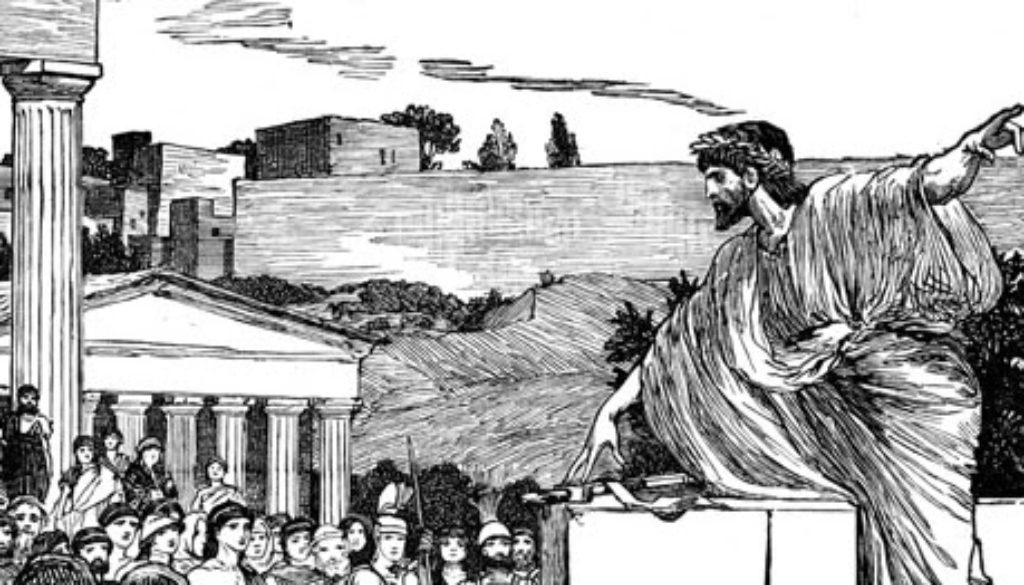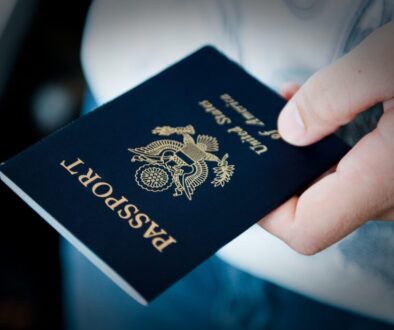An Election Year Debate: Part II

Atlanta, GA
May 6, 2020
A continuation of a debate between a couple sanctimonious graduate students, published in the Fall of 1996. Part I can be found here.
An Election Year Debate: Josh Engel vs. John Breen
Originally Published in the University of San Francisco Business Journal (November 1996)
Josh Engel Rebuttal
I would like to thank Mr. Breen for a thought out, and well written response to my position. Readers may recall that I perhaps too glibly compared the differing approaches embraced by Bob Dole and Bill Clinton on the issues of taxes and family values. My arguments for the President against Dole were based on specific policy issues on which the two candidates differ. Mr. Breen, in response, does not defend Dole’s position; rather, Mr. Breen calls into question the essential role of the Federal government, and once again asks the seminal question of American democracy: How much power should the Federal government have vis a vis the independent, sovereign States?
Government
Mr. Breen would limit the Federal government considerably. Forget about Social Security, Medicare, Medicaid. No need for the Family and Medical Leave Act, child labor laws, OSHA, or the Minimum Wage. Of course, there would be no need for the Civil Rights laws or the Americans With Disabilities Act. Taken to its logical extreme, Abraham Lincoln (emancipation), Theodore Roosevelt (progressive labor policies), and Franklin Roosevelt (the New Deal), would have been unable to act and lead in the manner which was necessitated in the turbulent atmospheres of their respective eras.
No Income Taxes
Mr. Breen attacks the 16th Amendment which gives Congress the power to collect income taxes. As an amendment to the Constitution, this provision had to withstand the scrutiny of the states and the American people before it became part of the Constitution. The Congress thus has the power to “lay and collect taxes on income.” The most basic function of collecting taxes is to fund the operations of the government. Even if Mr. Breen had his way and the Federal government only consisted of the Departments of Defense, State, and Treasury, plus the everyday running of the legislative and judicial branches, then there would still be a need for a funding mechanism. Get rid of the income tax and replace it with one of the following: a value added tax, a consumption or national sales tax, a national property tax. Which one? At least the current system has an element of fairness, in that those at the bottom of the economic ladder pay less than those at the top.
Mr. Breen contends that the Federal government has no “moral authority” to collect taxes. He states that “the unwilling benefactors of society’s leeches are branded ‘greedy’ or ‘selfish’”. The middle manager – laid off in the latest wave of corporate downsizing in order to increase profits for institutional shareholders – is not a leech. The legal immigrant – who does the work that nobody else wants to do at minimum wage or less, who works hard to make a life for himself and his family, and wants to become a productive tax paying citizen – is not a leech. The young mother who cannot afford health insurance, or the elderly person in need, or even the humble student who needs financial help to open the doors of a higher education – these people are not leeches. You want “moral authority”? Look into the faces of the millions of people who have been given an opportunity to succeed, and you will find it.
Economic Darwinism
Mr. Breen is correct when he states that nothing prevented businesses from instituting their own medical and family leave policies. Nothing prevented businesses from establishing their own minimum wage policies either, and nothing prohibited businesses from refusing to hire children and working them twelve or fourteen hours a day. Yet that is exactly the point. In this day and age where corporations strive to find a competitive advantage in order to increase market share and profit for stockholders, corporations look for ways to cut costs. The federal government instituted policies and laws such as the Minimum Wage, OSHA, and Family and Medical Leave, because these areas should not be fodder for management’s cost cutting scalpel.
The Constitution
Mr. Breen writes that the Federal programs such as the student loan guarantees continue to be “underwritten by taxpayers who have no choice but to do so”. Taxpayers have the choice every two years to elect a representative to the national legislative body. This year, taxpayers have a choice of electing Bob Dole and his 15% tax cut, Harry Browne, the Libertarian candidate, who most likely would satisfy Mr. Breen’s standards, or Clinton, or Perot, or Nader. Mr. Breen has the freedom to enter his philosophy into the marketplace of ideas, and if he can convince enough people that he is right, then his ideas and philosophy will guide the policies of the Federal government. In this age of the “nanosecond Nineties”, political change is still the agonizingly slow process that was envisaged by the framers of the Constitution. The genius of the Constitution is the Federal government’s ability to adapt to a changed environment while maintaining the values of liberty and democracy. James Madison wrote that the Constitution “accommodated too not only the existing state of things, but to all the possible changes which futurity may [produce].” No doubt America exists in an extremely different world from that in which she was created, yet America’s essential values of liberty and democracy, as embedded in the Constitution, have remained intact.
Mr. Breen’s World
In Mr. Breen’s world, the state governments would each compose their own respective safety nets. A state, if it so desired, could elect to do nothing: no worker protections, no unemployment insurance, no safety net whatsoever. This might be attractive to certain interests, such as those who would not benefit from these social policies, or as Mr. Breen puts it, “the benefactors of society’s leeches.” Other states may tilt the opposite direction and provide ample protection to its neediest citizens. The result? A two tiered society, where the privileged in the Do Nothing states prey upon and fatten themselves at the expense of the Safety Net states. When that happens, the United States of America as one land of opportunity and equality ceases to exist, only to be replaced by fifty separate fiefdoms, wary and distrustful of one another. Conservatives point to progressive ideas such as affirmative action or valuing diversity as hastening the balkanization of America; I submit that the Do Nothing Libertarian philosophy would cause a balkanization along economic and class lines which in the end would be far more destructive to the national character of this country.
Mr. Breen’s argument is forceful and logical, yet we do not live in a world of absolutes. Real people are affected every day in real ways by the Federal government. Mr. Breen may not have ever had a need for and Federal policies or laws, and if he is lucky, perhaps he never will. However, thousands of real people are given the opportunity to succeed every day in real life and meaningful ways. Sometimes, logic must give way to a moral need to act, and sometimes the Federal government must get involved because it is the right thing to do.
John Breen’s Rebuttal
I must thank and commend Josh Engel for the first paragraph of his last response to me. I appreciate his kind words, and applaud that he recognized the intent of my initial reply. He notes, correctly, that I did not write to praise Bob Dole, but to extol the principles against which he and Bill Clinton stand. That said, I cannot let pass the balance of Mr. Engel’s piece.
Mr. Engle claims that were government limited to the extent I desire, Social Security, Medicare, Medicaid, the Minimum Wage, the Family Leave Act, child labor laws, OSHA, “Civil Rights” laws, and the ADA would not exist. He’s absolutely correct. The first three are blatant larceny, the remainder simply disguised forms. They each forcibly extract private property, or severely restrict its use, which amounts to the same thing. Indeed, common theft would be preferable. When a mugger strikes, he does not then return annually and claim it’s for your own good. Mr. Engel considers the state taking property as somehow distinguishable from, and preferable to, a bandit looting it. It is in fact far worse, as it assumes the ballot can transform an insidious activity into a legitimate one.
As I noted in my last response, the Family Leave Act is no more than a gift to big businesses at the expense of their smaller competitors. Child labor laws evolved not out of our compassion for kids, but at the behest of unions that disdained inexpensive competition. OSHA and the ADA are further examples of government infringing on the rights of property. OSHA is asinine on its face as it assumes businesses have some sort of incentive to expose their employees to injury. Of course, the incentive is the opposite: dead or wounded employees are not productive. If a business decides that handicap access is essential to its success, it will provide it, and reap the rewards or suffer the consequences – at the expense or to the delight of its competitors. Regardless, these decisions are in no way the concern of government, but solely of businesses in response to their competitors, customers, and employees.
The minimum wage – another sop to unions – is a law against employment for those such as Mr. Engel’s “legal immigrant who does the work nobody else wants to do at minimum wage or less”. Contrary to Mr. Engel, I never referred to such a worker as a “leech”, as he is not living off the efforts of another. I have no qualms with such a worker agreeing with an employer to work for a mutually satisfactory wage. It is not my business how low a wage he is willing to accept, and I am certainly not so arrogant as to insist that his valuation is insufficient. How would I presume to know what to him is a “low” wage? Indeed, if he accepts the wage, it must be adequate, and it is not for me, Josh Engel, or the government to presume otherwise.
Mr. Engel obviously assigns some intrinsic value to labor below which wages must not fall. How ridiculous this is becomes apparent after a few minutes thought. Exchanges occur precisely because people’s marginal valuations are subjective. I value a book more than the $20 I exchange for it; the book dealer values the $20 more than the book. Likewise, a migrant worker obviously values $1 (for example) more than the hour he must sacrifice for it. The employer values the worker’s hourly production more than the $1 he pays. If labor had intrinsic value, such an exchange would never occur, and the immigrant worker for whom Mr. Engel professes compassion would indeed be among society’s leeches.
Though I lambasted the 16th Amendment, I never, as Mr. Engel implies, questioned its constitutionality. I instead criticized the morality of legalized plunder it represents. I also disputed the constitutionality of most government agencies and their decrees. Mr. Engel acknowledges my right to submit my philosophy to the realm of public debate, and to push for its acceptance. The same is of course true for Mr. Engel’s view. Unfortunately, while my philosophy is consistent with a limited constitutional republic, his has been largely adopted despite lacking constitutional authority. The Constitution does not even mention, much less permit, the central government to concern itself with disabilities, child labor, work safety, wages, education, the environment, health, ad infinitum. While Article I, Section 8 states the Congress shall promote the “general welfare”, the means by which it may do so are specifically enumerated. If other means are permitted, the enumeration is pointless.
Mr. Engels states that moral authority for the income tax can be found in “the faces of the millions of people who have been given an opportunity…”. Although this emotional appeal is effective to some, it is offensive to me. First, I could give far more charity than I do were the government not expropriating up to half my income. Second, Mr. Engel must assume that without the behemoth in Washington people will not voluntarily assist those in need, or spend their money in ways he would approve. The history of charity indicates that people give if the state does not abscond their means to do so. Were the evidence otherwise, however, it would still not be for Mr. Engels or other statists to forcibly redirect the manner in which free people employ their property.
Socialism is far from virtuous, as virtue requires charity of the giver and gratitude of the recipient. Government inspires resentment in the taxpayer who has no choice but to give, and dependence of the recipient who comes to expect his “entitlement”. The inevitable effect is competition between producers and recipients that is far more emblematic of “Economic Darwinism” than the voluntary nature of the free market.
Mr. Engel produced an extensive laundry list that limited space does not permit me to refute. Perhaps I’ll reserve the task for a later date, though in a free country refutation should not be necessary. In such a place, arguments for government efficacy would die of their own deficiency.
Mr. Engel is a McLaren MBA student and an editor of the USF Business Journal
Mr. Breen is a McLaren MBA student and Economics teaching assistant in the Executive MBA program
JD



